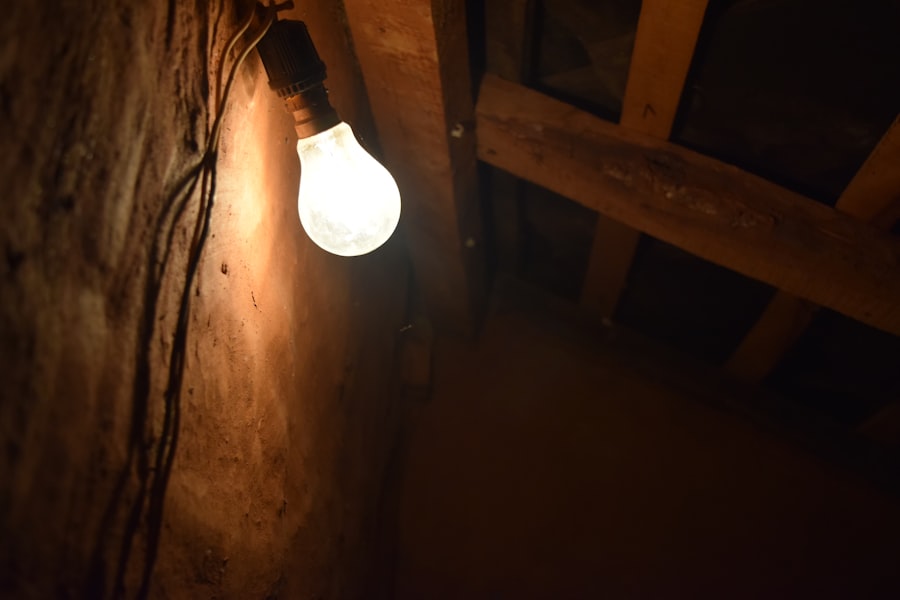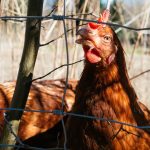Chickens, like all animals, have specific needs that must be met for optimal health and well-being, particularly during winter. These needs include warmth, protection from the elements, and access to nutritious food and fresh water. Chickens are sensitive to temperature changes and can experience cold stress, which may manifest as decreased egg production, lethargy, and reduced appetite.
While chickens have some natural adaptations to cold weather, they still require proper care during winter months. A warm, dry environment is essential to protect them from low temperatures. Ensuring access to unfrozen food and water is crucial.
It’s important to note that cold hardiness varies among chicken breeds, so understanding the specific needs of your flock is vital for providing appropriate care. By comprehending these winter requirements, chicken owners can make informed decisions to maintain their flock’s health and comfort during colder seasons. This knowledge enables the implementation of necessary measures to create a safe and suitable environment for chickens throughout the winter months.
Table of Contents
- 1 Providing Adequate Shelter and Insulation
- 2 Supplementing with Heat Sources
- 3 Ensuring Proper Ventilation
- 4 Offering Warm Bedding and Nesting Materials
- 5 Providing Nutritious Food and Fresh Water
- 6 Monitoring and Adjusting as Needed
- 7 FAQs
- 7.1 What are the best ways to keep chickens warm in winter?
- 7.2 What temperature is too cold for chickens?
- 7.3 How can I insulate my chicken coop for winter?
- 7.4 Are there any specific breeds of chickens that are better suited for cold weather?
- 7.5 Should I use a heat lamp in my chicken coop during winter?
Key Takeaways
- Chickens need extra care in winter to stay healthy and comfortable
- Adequate shelter and insulation are essential to protect chickens from harsh weather
- Supplementing with heat sources can help maintain a comfortable temperature
- Proper ventilation is crucial to prevent moisture buildup and maintain air quality
- Offering warm bedding and nesting materials can help chickens stay cozy
- Providing nutritious food and fresh water is important for maintaining health in winter
- Regular monitoring and adjustments are necessary to ensure chickens’ well-being in winter
Providing Adequate Shelter and Insulation
Insulating the Coop
A well-constructed coop is essential for protecting chickens from the cold and keeping them safe from predators. The coop should be insulated to help retain heat and keep out drafts. Additionally, it’s important to ensure that the coop is well-ventilated to prevent moisture buildup, which can lead to respiratory issues in chickens.
Regular Maintenance and Checks
Adding extra insulation to the walls and roof of the coop can help to keep it warm and dry during the winter months. It’s also important to regularly check for any drafts or leaks that may compromise the insulation of the coop.
Providing a Secure Outdoor Run
In addition to a well-insulated coop, providing a secure outdoor run for your chickens is also important. The run should be protected from wind and snow, and it’s a good idea to cover it with a tarp or plastic sheeting to provide additional protection from the elements. This will give your chickens a safe space to exercise and get fresh air without being exposed to harsh weather conditions.
Keeping Your Chickens Warm and Healthy
By providing adequate shelter and insulation for your chickens, you can help them stay warm and healthy throughout the winter.
Supplementing with Heat Sources
In some cases, especially in extremely cold climates, it may be necessary to supplement your chicken’s environment with additional heat sources. This can be done using heat lamps, heated pads, or heated waterers. It’s important to use caution when using heat sources in the coop, as they can pose a fire hazard if not used properly.
Heat lamps should be securely mounted and positioned away from any flammable materials. Additionally, it’s important to regularly check the temperature in the coop to ensure that it remains within a safe range for your chickens. Another option for providing supplemental heat is to use heated pads or mats designed specifically for use with poultry.
These can be placed on the floor of the coop to provide a warm surface for your chickens to rest on. Heated waterers are also important for ensuring that your chickens have access to unfrozen water during the winter months. By supplementing your chicken’s environment with heat sources, you can help them stay warm and comfortable even in the coldest weather.
Ensuring Proper Ventilation
While it’s important to keep your chicken coop well-insulated, it’s equally important to ensure that it is properly ventilated. Good ventilation is essential for preventing moisture buildup in the coop, which can lead to respiratory issues in chickens. Proper ventilation also helps to regulate the temperature inside the coop, preventing it from becoming too hot or too cold.
Ventilation can be achieved through windows, vents, or openings near the roof of the coop. It’s important to ensure that these openings are protected from drafts and predators while still allowing for adequate airflow. In addition to natural ventilation, you may also need to use mechanical ventilation systems in some cases.
This can include exhaust fans or air vents that are designed specifically for use in poultry coops. These systems can help to remove excess moisture and regulate the temperature inside the coop. By ensuring proper ventilation in your chicken coop, you can help to create a healthy and comfortable environment for your flock during the winter months.
Offering Warm Bedding and Nesting Materials
Providing warm bedding and nesting materials is essential for keeping your chickens comfortable during the winter months. Straw or wood shavings are good options for bedding, as they provide insulation and help to keep your chickens warm. It’s important to regularly clean and replace bedding to prevent moisture buildup and keep the coop dry.
Additionally, providing nesting materials such as straw or shredded paper can help to keep your chickens warm while they lay their eggs. In addition to providing warm bedding and nesting materials inside the coop, it’s also important to ensure that your chickens have a dry and comfortable place to roost at night. Roosting bars should be positioned higher than the nesting boxes to encourage your chickens to roost at night.
By offering warm bedding and nesting materials, you can help your chickens stay cozy and comfortable throughout the winter.
Providing Nutritious Food and Fresh Water

Nutritious Food for Energy
Cold weather increases the energy requirements of chickens as they work harder to stay warm. Therefore, it’s crucial to offer high-quality feed rich in protein and nutrients. You can also supplement their diet with treats like scratch grains or mealworms to provide extra energy during the colder months.
Fresh Water is a Must
Access to fresh water is vital for your chickens’ health. However, waterers can freeze quickly in cold weather, so it’s essential to regularly check and replace frozen water with fresh water throughout the day. Consider using heated waterers or adding a small amount of apple cider vinegar to their water to prevent freezing.
Healthy Chickens, Happy Chickens
By providing nutritious food and fresh water, you can help your chickens stay healthy and maintain their energy levels during the winter months. This will ensure they remain happy and thrive even in the coldest of temperatures.
Monitoring and Adjusting as Needed
Finally, it’s important to regularly monitor your chickens and their environment throughout the winter months and make any necessary adjustments as needed. This includes checking for signs of cold stress in your chickens, such as decreased egg production or lethargy, as well as regularly inspecting the coop for drafts or leaks. It’s also important to monitor the temperature inside the coop and make adjustments as needed to ensure that it remains within a safe range for your chickens.
By staying vigilant and making regular adjustments as needed, you can ensure that your chickens stay healthy and comfortable throughout the winter months. This may include adding additional insulation, adjusting heat sources, or making changes to their diet or bedding materials. By monitoring and adjusting as needed, you can provide your chickens with the care and attention they need to thrive during the colder months.
In conclusion, caring for chickens in winter requires careful attention to their specific needs for warmth, shelter, food, and water. By understanding these needs and taking proactive measures such as providing adequate shelter and insulation, supplementing with heat sources when necessary, ensuring proper ventilation, offering warm bedding and nesting materials, providing nutritious food and fresh water, and monitoring and adjusting as needed, you can help your flock stay healthy and comfortable throughout the winter months. With proper care and attention, your chickens can thrive even in the coldest weather.
If you’re looking for tips on how to keep your chickens warm in the winter, you might want to check out this article on heaters for a chicken coop. It provides valuable information on different types of heaters that can help keep your chickens comfortable during the colder months.
FAQs
What are the best ways to keep chickens warm in winter?
Some of the best ways to keep chickens warm in winter include providing a well-insulated coop, using heat lamps or heated pads, and ensuring good ventilation while avoiding drafts.
What temperature is too cold for chickens?
Chickens can tolerate cold temperatures quite well, but they may start to experience discomfort and health issues if the temperature drops below 0°F (-18°C). It’s important to provide them with a warm and dry environment to prevent frostbite and other cold-related problems.
How can I insulate my chicken coop for winter?
You can insulate your chicken coop for winter by adding extra bedding, sealing any drafts, and using insulating materials such as foam board or straw bales. It’s important to ensure good ventilation while still keeping the coop warm.
Are there any specific breeds of chickens that are better suited for cold weather?
Yes, some chicken breeds are better suited for cold weather than others. Breeds such as the Plymouth Rock, Orpington, and Wyandotte are known for their cold-hardiness and ability to withstand winter temperatures.
Should I use a heat lamp in my chicken coop during winter?
Using a heat lamp in the chicken coop during winter can be beneficial, especially during extremely cold temperatures. However, it’s important to use the heat lamp safely and to monitor the temperature in the coop to prevent overheating or fire hazards.
Meet Walter, the feathered-friend fanatic of Florida! Nestled in the sunshine state, Walter struts through life with his feathered companions, clucking his way to happiness. With a coop that’s fancier than a five-star hotel, he’s the Don Juan of the chicken world. When he’s not teaching his hens to do the cha-cha, you’ll find him in a heated debate with his prized rooster, Sir Clucks-a-Lot. Walter’s poultry passion is no yolk; he’s the sunny-side-up guy you never knew you needed in your flock of friends!







